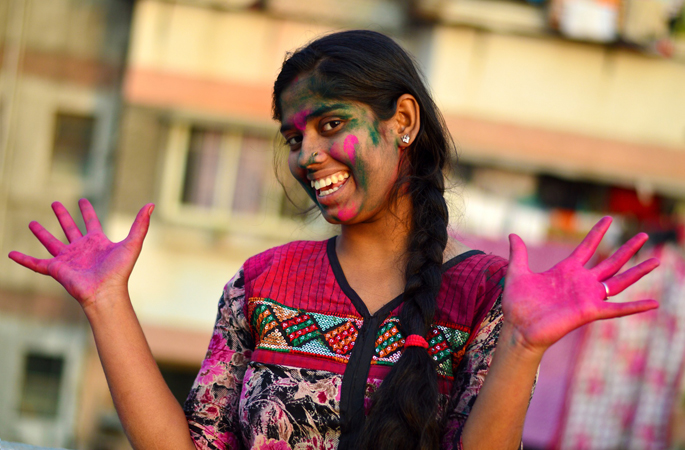As an editor of anthologies of fiction from South Asia and Australia, I have the privilege of reading original, creative and gripping stories. My work with South Asian, Australian and South Asian—Australian writers and academics led me to my research for my Doctorate of Creative Arts (UTS) in which I examined the work of South Asian—Australian novelists published in Australia since 1990.
My link to South Asian authors began in 1998. That year, I entered a story in the Commonwealth Short Story Prize. My story was selected as the winner of the Oceania section. The overall winner was Sujata Sankranti from India. I wrote to congratulate Sujata. She was generous enough to write back, and so began an enduring friendship.
Sujata, from the princely state of Kerala, was at that time teaching at the Sri Venkateswara College at the University of Delhi. She introduced me to contemporary Indian art and literature. I had had a glimpse of India through a great aunt whose mother’s family are from Madras (Chennai), in India. Sujata and I formed a firm friendship based on mutual respect which allowed us to converse honestly and to critique each other’s stories.
Sujata introduced me to Dr Meenakshi Bharat. Meenakshi is a well-published academic, writer, editor, speaker and conference convenor. She is an absolute dynamo who seems tireless in her approach to promoting Indian literature. Meenakshi invited me to contribute to a book on Indian women’s writing in English which she was editing. My task was to review and analyse Sujata’s work, in particular, her collection of short stories The Warp and the Weft. The book Desert in Bloom: Indian Women’s Writing in English was published by Pencraft in 1994.
It’s an utter joy to work with someone of Meenakshi’s calibre and dedication. I hadn’t realised what a hard task-master Meenakshi is until later that year when she invited me to co-edit an anthology of stories from South Asia and Australia to be published in both countries. We are both self-motivated people who enjoy a challenge. We had each previously co-edited anthologies. Meenakshi and I discovered we could work seamlessly together.
Although we live many kilometres apart and have experienced different lives, we found we had similar ethics and goals. One goal we could achieve best by working together collaboratively was to publish anthologies of stories from Australia and the Indian subcontinent.
These anthologies are issue-driven, in that we spend a great deal of time discussing current issues that affect both continents. We choose an issue as a theme, for example, how Terrorism affects our daily lives, or our response to refugees, or how we connect through electronic communications. We each had our complementary strengths. We each had our day jobs as lecturers, writers and editors.
When one of us had to take time out for professional or personal reasons, the other could keep things going. We are able to rely on each other when necessary. In the thirteen years or so that I’ve known Meenakshi, we have come to trust each other absolutely. We know each other’s families and have visited each other’s homes. We have met each other’s friends and colleagues and widened our horizons. We have worked together in the same room, in Australia and in India. We have worked thousands of miles apart using technology to communicate.
Naturally, there are times when we disagree. We work through this by each presenting our case and listening to each other. Sometimes one of us will realise the other has the better outlook or perspective; at other times we employ the art of compromise.
We successfully published our anthologies in Australia and in India, which achieved our goal of bringing stories from South Asia to Australia and stories from Australia to South Asia. We were fortunate to receive wide media coverage in Australia and India each time we released an anthology. Our anthologies have been cited in academic papers, notably by Paul Sharrad and P R Biju; and in book reviews of other authors.
Nonetheless, the publishing industry is fickle. For each anthology, we have to put together an irresistible pitch to publishers and rely on their good graces to take it on and publish.
From our first Fear Factor Terror Incognito – ten stories of short fiction from Australia and ten from South Asia, with a Foreword by Yasmine Gooneratne – to our fourth anthology An Old Resentful Slipper which is in the works, we have been encouraged and heartened by the response in Australia and in South Asia. Our latest anthology addresses the theme of tolerance and intolerance. The strong support and response have strengthened our commitment to publishing our anthologies.
The Introductions Meenakshi and Sharon composed are available on the Academia website
https://www.academia.edu/22311264/The_Fear_Syndrome
https://www.academia.edu/5425562/Introduction_to_Only_Connect_stories_about_Technology_and_Us_from_Australia_and_the_Indian_subcontinent
For more details about the anthologies and reviews, please see www.roundtablewriting.com



